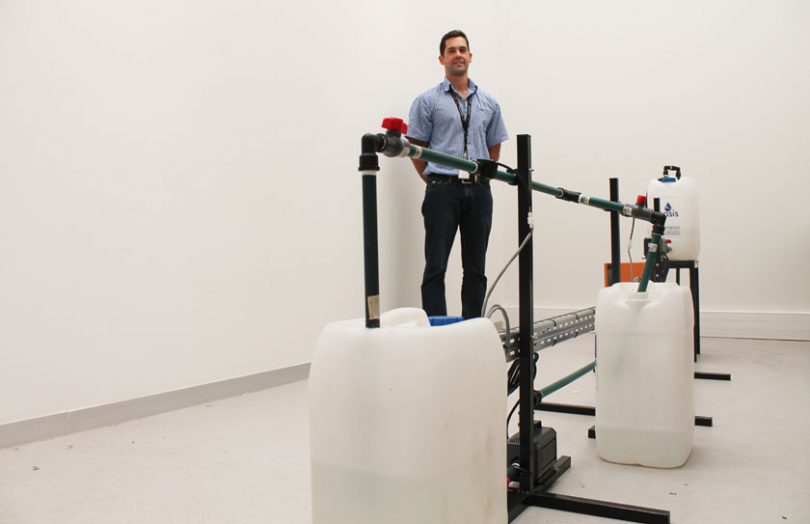A final year engineering project could save thousands of litres of water by helping municipalities to detect leaks in their water distribution lines.
Jean-Pierre Mostert, who recently graduated with his BTech in Electrical Engineering: Control Systems, developed a low-cost water leak detection system, an innovative project that helped him secure the coveted spot as the best performing student of the 2016 graduating class.
Mostert, who is now employed at Lesedi Nuclear Services, says pipeline leakages within the water distribution network of municipalities is one of the major contributing factors to water loss, with some recording losses of more than 1 769.69 mega liters per year.
“There is a need for an automatic early detection method of water leak detection within a water distribution network,” he says.
“These leakages waste money, cause severe damage to the surrounding area and infrastructure and pose a potential risk to public health.”
Mostert says current leak detection methods, such as looking for wet patches of ground above pipes, are not sufficient and that very little techniques and methods have been used to constantly and continuously monitor a pipeline.
To prevent water loss, he developed a software algorithm that makes use of flow measurements within a simulated water distribution network to detect leaks.
As part of the project, a rig simulating a mains water distribution pipeline was constructed, which featured an inlet and outlet flow sensor to detect the amount of water entering as well as exiting the pipe. Utilising a micro controller unit and specialized software, the flow measurement data is transmitted to a central monitoring station (PC) over a wireless sensor network and captured into a database.
“The basic idea is to make use of the volume balancing method, whereby the current flow measurements are constantly compared to a normal threshold. Once a deviation from these conditions is detected and present for a certain amount of time, the algorithm will signal an alarm,” says Mostert.
The alarm system will allow individuals who are monitoring the water distribution system to easily cut power to a problematic bulk line and prevent further water losses. Mostert says this approach is low-cost as water distribution networks already have sensors, which can be incorporated into the proposed system.
“The final recommendation for this project will be that the existing flow sensors within the water distribution network of a municipality should be adapted so that data can be transmitted remotely over a network,” says Mostert.
“These sensors can then form a wireless sensor network and the early leak detection method can be implemented on the central PC. This will also allow for the data to be accessed remotely via an internet connection from any location.”
*The project was supervised by researchers Dr Wilfred Fritz and Deon Kallis.







